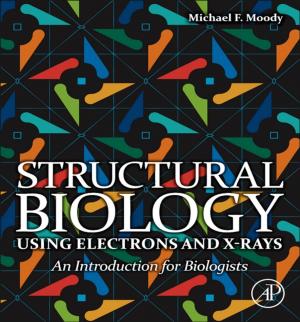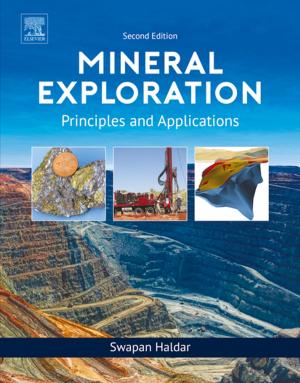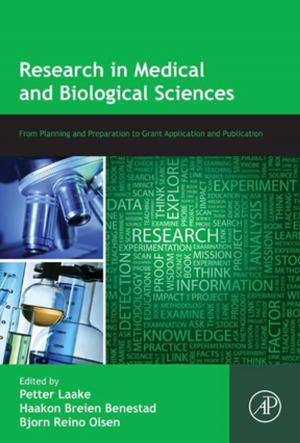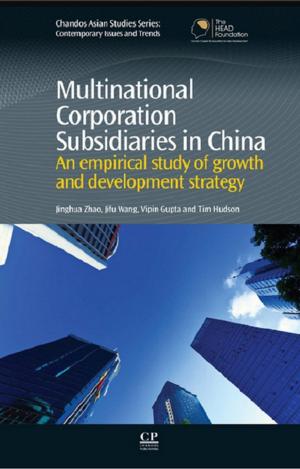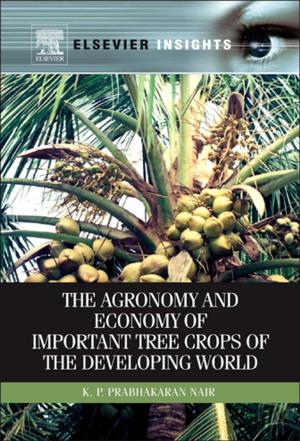Metropolitan Sustainability
Understanding and Improving the Urban Environment
Nonfiction, Science & Nature, Technology, Power Resources, Science, Biological Sciences, Environmental Science| Author: | ISBN: | 9780857096463 | |
| Publisher: | Elsevier Science | Publication: | September 11, 2012 |
| Imprint: | Woodhead Publishing | Language: | English |
| Author: | |
| ISBN: | 9780857096463 |
| Publisher: | Elsevier Science |
| Publication: | September 11, 2012 |
| Imprint: | Woodhead Publishing |
| Language: | English |
Global populations have grown rapidly in recent decades, leading to ever increasing demands for shelter, resources, energy and utilities. Coupled with the worldwide need to achieve lower impact buildings and conservation of resources, the need to achieve sustainability in urban environments has never been more acute. This book critically reviews the fundamental issues and applied science, engineering and technology that will enable all cities to achieve a greater level of metropolitan sustainability, and assist nations in meeting the needs of their growing urban populations.
Part one introduces key issues related to metropolitan sustainability, including the use of both urban metabolism and benefit cost analysis. Part two focuses on urban land use and the environmental impact of the built environment. The urban heat island effect, redevelopment of brownfield sites and urban agriculture are discussed in depth, before part three goes on to explore urban air pollution and emissions control. Urban water resources, reuse and management are explored in part four, followed by a study of urban energy supply and management in part five. Solar, wind and bioenergy, the role of waste-to-energy systems in the urban infrastructure, and smart energy for cities are investigated. Finally, part six considers sustainable urban development, transport and planning.
With its distinguished editor and international team of expert contributors, Metropolitan sustainability is an essential resource for low-impact building engineers, sustainability consultants and architects, town and city planners, local/municipal authorities, and national and non-governmental bodies, and provides a thorough overview for academics of all levels in this field.
- Critically reviews the fundamental issues and applied science, engineering and technology that will enable all cities to achieve a greater level of metropolitan sustainability
- Will assist nations in meeting the needs of their growing urban populations
- Chapters discuss urban land use, the environmental impact of the build environment, the urban heat island effect, urban air pollution and emissions control, among other topics
Global populations have grown rapidly in recent decades, leading to ever increasing demands for shelter, resources, energy and utilities. Coupled with the worldwide need to achieve lower impact buildings and conservation of resources, the need to achieve sustainability in urban environments has never been more acute. This book critically reviews the fundamental issues and applied science, engineering and technology that will enable all cities to achieve a greater level of metropolitan sustainability, and assist nations in meeting the needs of their growing urban populations.
Part one introduces key issues related to metropolitan sustainability, including the use of both urban metabolism and benefit cost analysis. Part two focuses on urban land use and the environmental impact of the built environment. The urban heat island effect, redevelopment of brownfield sites and urban agriculture are discussed in depth, before part three goes on to explore urban air pollution and emissions control. Urban water resources, reuse and management are explored in part four, followed by a study of urban energy supply and management in part five. Solar, wind and bioenergy, the role of waste-to-energy systems in the urban infrastructure, and smart energy for cities are investigated. Finally, part six considers sustainable urban development, transport and planning.
With its distinguished editor and international team of expert contributors, Metropolitan sustainability is an essential resource for low-impact building engineers, sustainability consultants and architects, town and city planners, local/municipal authorities, and national and non-governmental bodies, and provides a thorough overview for academics of all levels in this field.
- Critically reviews the fundamental issues and applied science, engineering and technology that will enable all cities to achieve a greater level of metropolitan sustainability
- Will assist nations in meeting the needs of their growing urban populations
- Chapters discuss urban land use, the environmental impact of the build environment, the urban heat island effect, urban air pollution and emissions control, among other topics

